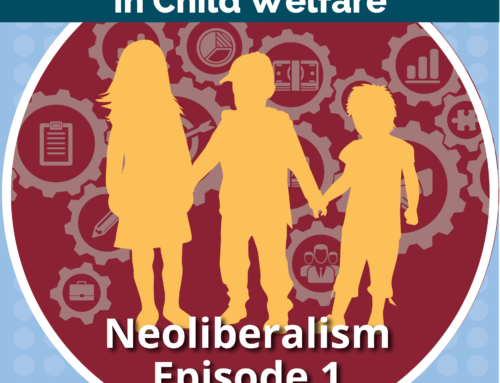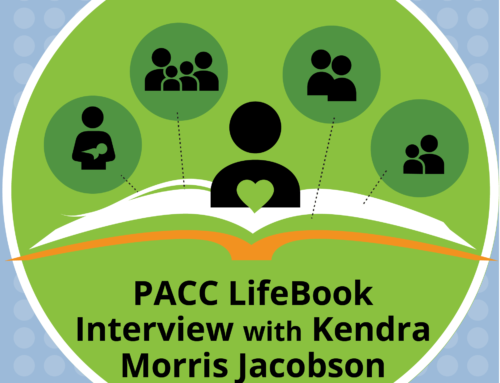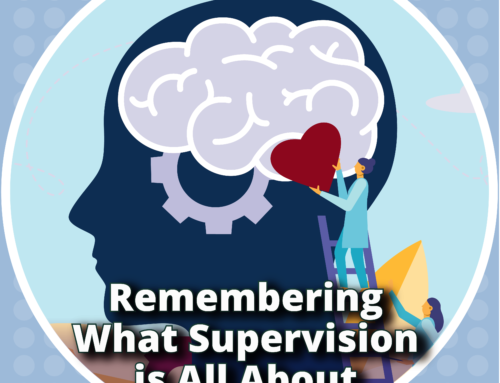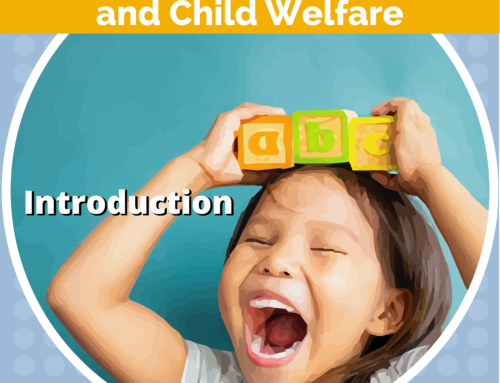In this podcast series, Marjorie Aunos hosts conversations exploring how parenting can be done differently and how professionals can best support parents with disabilities. Marjorie is a clinical psychologist, author, and researcher from Montreal who has dedicated her career to working with parents with intellectual disabilities and then also became a parent with disabilities herself.
Marjorie invites us all to stay open to possibilities and reflect on our own positioning and values. She then introduces us to the world of Parents and Parenting with Disabilities.
Reflections on what becoming a mom with a physical disability has changed in my perspective as a researcher & practitioner who works with parents with intellectual disabilities.
RESOURCES:
- Mom on Wheels (book)
- Amplifying Voices: Parents with Disabilities (2022) (YouTube)
- Able or unable: how do professionals determine the parenting capacity of mothers with intellectual disabilities. Journal of Public Child Welfare (article)
- We Got This: Stories of Disabled Parenting (book)
- A Celebration of Family: Stories of Parents with Disabilities (website)
- Maternity Rolls, Pregnancy, Childbirth and Disability (book)
- Marjorie Aunos (website)
Reflections on what becoming a mom with a physical disability has changed in my perspective as a researcher & practitioner who works with parents with intellectual disabilities.
RESOURCES:
- Mayes,Llewellyn (PDF) Mothers with learning difficulties and their support networks.
- Promoting health and home safety for children of parents with intellectual disability: A randomized controlled trial. Research in Developmental Disabilities
- Parents with intellectual disability in a population context
- Llewellyn, G. (2019). Parents with disabilities. In Bornstein, M. H. (Ed.) Handbook of Parenting (3rd ed.) Vol 4. Social and Cultural Conditions of Parenting (pp.234-273)
- Skeels, H. M., & Dye, H. B. (1939). A study of the effects of differential stimulation on mentally retarded children. Proceedings. American Association on Mental Deficiency, 44, 1, 114–136.
Maurice Feldman explains to us how the general principles of applied behavioral analysis has led to the creation of some important parenting education programs and a framework around assessing parenting capacity of parents with IDD.
RESOURCES:
- Feldman, M.A., & Aunos, M. (2010). Comprehensive competence-based parenting capacity assessment for parents with learning difficulties. Kingston, NY: NADD Press.
First and only book presenting an evidence-based approach to assessing parents with learning difficulties (who comprise 20-40% of all child welfare court cases). Based on my 30 years of research and clinical practice, this work has contributed to growing significant changes in parenting assessment practices. - Feldman, M.A., & Case, L. (1993). Step-by-Step Parenting Program.
- Feldman, M.A. (2000). Family Game.
David McConnell uses three important papers to bring to the forefront context and reminds us how taking a slightly different perspective can lead us to imagine different outcomes. David also speaks about Tim and Wendy Booth’s legacy and shares what it was like to work with them.
RESOURCES:
- Strike, R., & McConnell, D. (2002). Look at me, Listen to me, I have something important to say. Sexuality & Disability, 20, 53-63.
- Booth, W., & Booth, T. (1993). Accentuate the Positive: A personal Profile of a Parent with Learning Difficulties. Disability, Handicap & Society, 8, 377-392.
- Booth, T., & Booth, W. (1994). Parenting Under Pressure: Mothers and Fathers with Learning Difficulties. 157 pages.
- Booth, T., & Booth, W. (1998). Growing Up with Parents with Learning Difficulties. 232 pages.
In this episode, Marjorie interviews Beth and Lily, who are 18-year-old twins of Amanda, a mom with an intellectual disability. They talk about being raised within a community of support and about how the decisions we take ‘for’ the children often have repercussions that we don’t consider. This is an important episode that offers child welfare workers a chance to hear from young people with lived experience!
RESOURCES:
- Aussie mum with intellectual disabilities determined to keep her girls. The Project. Australia.
https://www.facebook.com/TheProjectTV/videos/142241791146565/ - We’ve Got this- ABC Radio – Short series with Eliza Hull:
https://www.abc.net.au/radionational/programs/lifematters/weve-got-this:-parenting-with-an-intellectual-disability/10429814 - Amanda White (Sept 2013). Being Mum to my girls. Ramp Up.
https://www.abc.net.au/rampup/articles/2013/04/23/3743367.htm - Margaret Spencer (April 2013). Being a mother behind a mother with intellectual disability.
Ramp Up. https://www.abc.net.au/rampup/articles/2013/04/23/3743491.htm
In this episode, Marjorie interviews researcher Dr. Susan Collings. Dr. Collings has met with several school-aged children of parents with intellectual disabilities. She brings forward their perspective in her research and reminds us that children feel connected to their family. Empowering families is thus supporting children.
RESOURCES:
In this episode, Monika Mitra speaks about parenthood of persons with disabilities and the notion of representation in large population datasets.
Dr. Monika Mitra is the Nancy Lurie Marks Associate Professor of Disability Policy and Director of the Lurie Institute for Disability Policy at Brandeis University. Her research broadly focuses on disparities in health outcomes and health care access among people with disabilities.
RESOURCES:
- The National Research Center for Parents with Disabilities is a collaborative research and advocacy project that aims to support parents with disabilities.
- The National Center for Disability and Pregnancy Research conducts multidisciplinary research about reproduction, pregnancy, and disability, including reproductive health, sex education, prenatal health, childbirth, interactions with obstetricians, and support networks.
- The Special Interest Research Group on Parents and Parenting with Intellectual Disabilities
RESOURCES:
In episode 12, Laura Pacheco brings forward the importance of understanding a family’s culture to better understand their experience, goals and aspirations and know how to best support them. She speaks briefly about Tim and Wendy Booth’s legacy and how they influenced her way of conducting research and practice.
Dr. Laura Pacheco is an assistant professor in the School of Social Work and Memorial University and adjunct professor at McGill University’s school of social work. Her current projects are related to how mothers with intellectual disabilities are negatively constructed and treated within the child welfare court system and workers’ needs in supporting parents with intellectual disabilities in order to build systems capacity.
In episode 13, Marjorie speaks with Beth Tarleton, who believes that workers need to be empowered to do their job. She talks about her orientation has always been to look for new ways to train, infuse knowledge and support the workers who support the parents.
Beth Tarleton is a senior lecturer at the University of Bristol. Beth has been researching positive support for parents with learning disabilities (intellectual disabilities) and milder learning difficulties since 2005. Beth is co-ordinator of the Working Together with Parents Network which shares positive practice about working with parents with a learning disability/difficulty.
In part 1 of this two-part episode, Ella Callow speaks about the law pertaining to the rights of parents with disabilities and the intersection of parenting, disability and the Indian Child Welfare Act (ICWA). She points out the systemic discrimination that is still pervasive in many states and other parts of the world. Ella’s lens as a member of an Indigenous community and experience as a lawyer working with parents with disabilities will be useful for child welfare workers.
In part 2 of this two-part episode, Ella Callow speaks more with Marjorie about the law pertaining to the rights of parents with disabilities and the intersection of parenting, disability, and the Indian Child Welfare Act (ICWA). She discusses Native people’s experiences of disability in their community and how explicit or implicit bias about disability and an inability to parent leads to detrimental decisions for families. At 34 minutes, listen to the story of Ella’s fondest memories with her grandfather.
In episode sixteen, Marjorie speaks with Carmit-Noa Shpligelman. Carmit is a mom by choice and a woman with a disability. She discusses her research on the attitudes of workers towards the parenthood of parents with disabilities. In their work with children and families, child welfare workers can learn from Carmit’s incredible lived experience and applicable research.
Hanna Bjorg Sigurjondsottir and Jim Rice have extensive knowledge of the Child Welfare System in Iceland. In episode seventeen, they speak to the faults and preconceived biases that the system can impose and how detrimental it can be, especially to parents with intellectual disabilities.
In episode 18, Liz Lightfoot speaks about Parents with Disabilities slipping through the cracks and not receiving the support they require. She talks about the need to change practices within the child welfare system and dreams of implementing a national training curriculum for social workers that would include dissemination of knowledge around parenting with a disability.
In episode 19, guest Rachel Mayes looked at one thing that not many thought of focusing on: the grief response of parents with disabilities who lost custody of their children.
In episode 20, Robyn Powell speaks about the discrimination persons with disabilities face when it comes to their right to have and create their family the way they see fit. She talks about how ableism is ingrained into child welfare and how this system should be completely remodeled.
In episode 21, Marjorie speaks with Dani Izzie. Dani is a disability advocate and wheelchair user and a new mom to twins. She is the subject and producer of the documentary film, “Dani’s Twins,” about pregnancy and motherhood as a quadriplegic during the pandemic.
In episode 22, Hilary Brown presents her groundbreaking data around pregnancy rates in women with all kinds of disabilities. She brings forward data from large datasets and complements them with some elements of qualitative data Lesley Tarasoff has collected.
In episode 23, Marjorie speaks with Lesley Tarasoff. Lesley has interviewed several parents with different disabilities about the disparities they faced pre, during, and post pregnancy. She shares the insight she gained while speaking to them.
In episode 24, Tommie Forslund talks about how he and his colleagues have used the lens of child attachment and maternal sensitivity to view the parenting of mothers with intellectual disabilities. He also talks about the importance of taking into account contextual factors, such as the parents’ experiences of abuse and maltreatment, in order to intervene and provide support more efficaciously.
In Episode 25, Marjorie speaks with Eliza Hull, musician, writer and disability advocate. She was the 8-parts-series podcast host of We’ve Got This and is the editor behind the books of the same title that brings forward the stories of families headed by one or two parents with disabilities in an Australian, US and UK edition.
In this episode Marjorie Aunos and Dr. Traci LaLiberte reflect on the Parenting Done Differently Podcast. In this series Marjorie interviewed over 20 scholars and researchers in the field along with parents with disabilities and the children of parents with disabilities. Marjorie and Traci speak about the importance of providing tools for professionals who work in child welfare and looking for answers where we least expect them.




